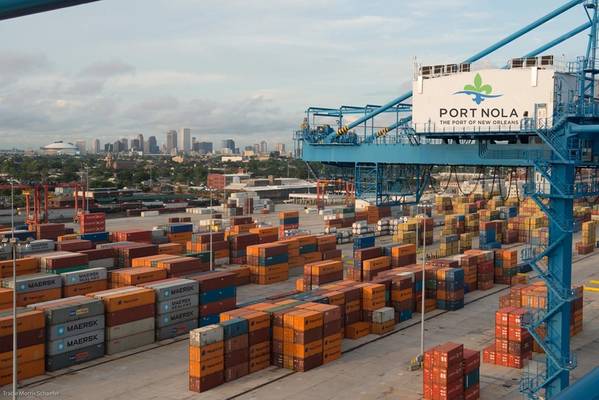New shipping alliances that came into effect a month ago are unlikely to increase ocean freight competitiveness between the United States and its NAFTA partners, said online freight forwarder iContainers.
According to data released by the U.S. Department of Transportation’s Bureau of Transportation Statistics, the dollar value of US-NAFTA goods shipped by vessel in 2016 fell 20 percent year-on-year. Of the five major transportation modes of truck, pipeline, vessel, rail, and air, rail is the only mode to carry more freight, registering a 0.2 percent increase from 2015.
In 2016, $1.069 trillion worth of freight goods were transported between U.S. and its NAFTA partners. Trucks were responsible for majority of this, moving 65.5 percent of the cargo. This is followed by rail with 15.5 percent, vessels in third place with 5.5 percent, pipeline with 4.6 percent, and air with 3.9 percent.
“The new shipping alliances are unlikely to increase the U.S.-NAFTA ocean freight competitiveness as this is not a trade that will hold a lot of focus for them,” said Klaus Lysdal, Vice President of Sales and Operations at iContainers.
“There’s hardly any ocean freight between the U.S. and Canada and it will probably stay this way. Ocean freight competitiveness to and from Mexico is also unlikely to increase.”
Vessels carried just 3.3 percent and 7.7 percent of the total freight flow to Canada and Mexico respectively. In comparison, trucks handled 60.1 percent of freight movement to Canada and 71 percent to Mexico.
“Container trucking in Mexico is relatively expensive. But Mexico freight is pretty much only relevant from the US East Coast as otherwise rail or truck becomes more competitive,” Lysdal added.
“Unless there’s a substantial inland movement in Mexico, it usually makes ocean freight difficult to compete.”
However, there are still benefits for transporting goods via ocean freight. Unlike other modes of transportation, it’s able to carry out mass shipments of products at a much lower cost. iContainers says an improvement in operational efficiencies of the shipping sector could lead to an increase in ocean freight movements. With the freight forwarder’s online quoting platform, this is exactly what the iContainers is aiming to achieve.
“Improving ocean freight competitiveness will be fundamentally down to simplifying operational processes,” Lysdal said.
“Shippers may not be able to perceive the change that’s currently taking place in the industry. But with emergence of new technologies, this could very well evolve into an unstoppable trend aimed at improving import and export efficiencies.”
Additionally, ocean freight is currently the least polluting mode of transport. In an increasingly environmentally-sensitive sector, this could prove vital.




